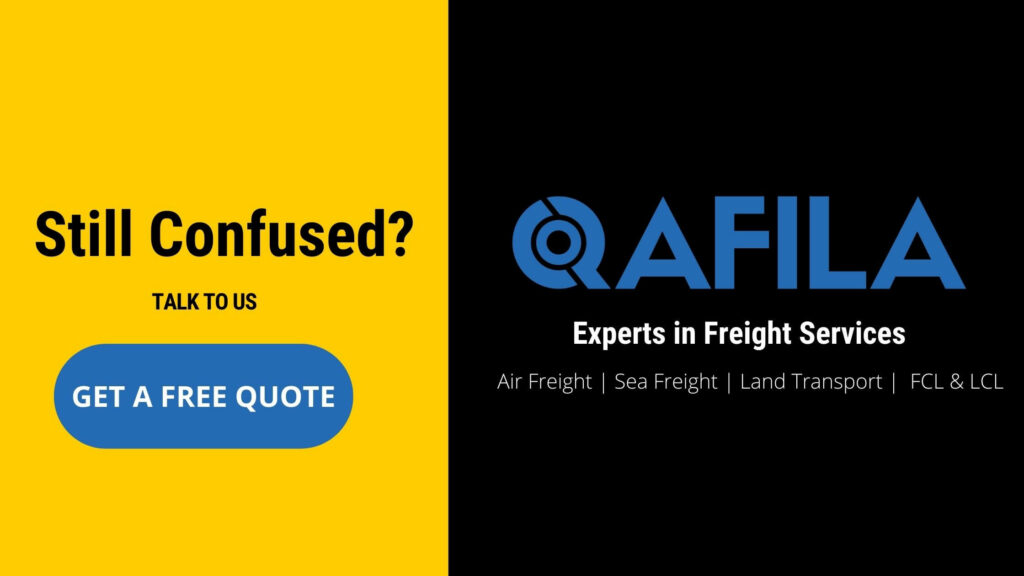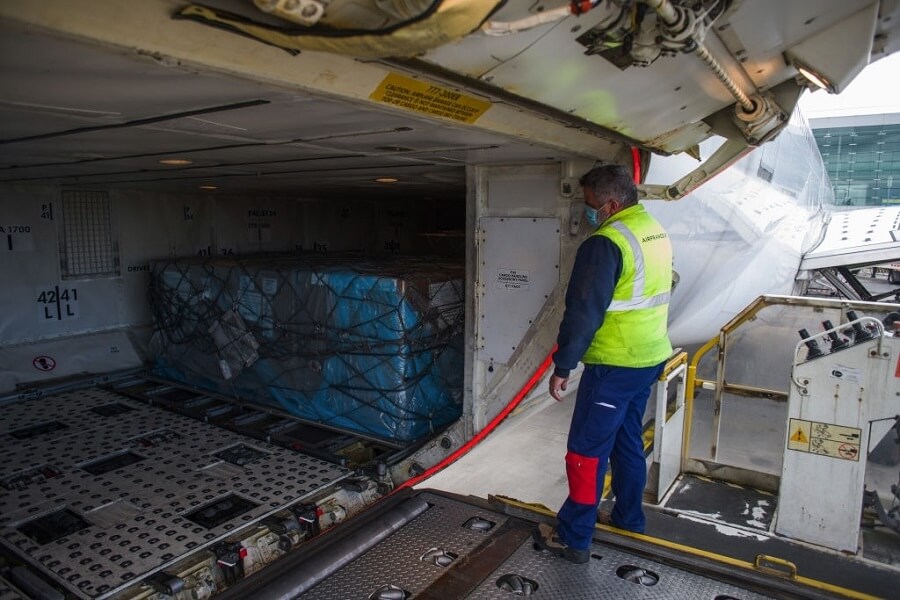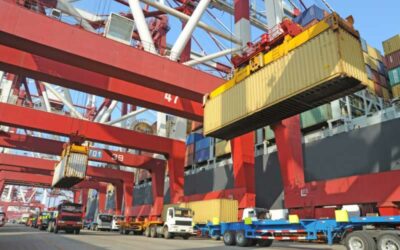What is Fuel Surcharge? | Everything You Need to Know
Air transport has been imposing these extra fuel costs for a long time. This all started when fuel prices went way up. It was fair enough then. Now, they are adding surcharges so the cost of the fuel has gone up a lot.
This article will show you about what fuel surcharge in air Freight is, types of fuel surcharges, what are the factors behind them, how to calculate fuel surcharges with an example, and tips to decrease fuel surcharges in air cargo.
Table of Contents
What is a Fuel Surcharge?
The fuel surcharge is an additional flexible price charged by traveler or truckage corporations to hide the unsteady price of fuel. It’s calculated as a share of interest rate and is typically supplemental to a shipper’s freight bill to hide the value of operations.
Changes in fuel costs result in shaky costs for the transport trade, requiring a variable fuel extra charge that can rise, drop, or be expelled, in line with developments in fuel costs.
Fuel surcharge relies on the common fuel worth that’s reportable by the government and might show a discrepancy for every shipper or industry, supporting fuel price to revenue magnitude relation. it’sIt’s accustomed to cowl extra fuel prices and keeps carriers profitable, even once fuel prices rise.
Why are those fuel surcharges?
The purpose of taking the fuel surcharge is: “ To offset or defray the cost of the fuel to the entity responsible for purchasing the fuel.”
There is no uniform approach of scheming fuel surcharges; corporations use their formula. Most carriers have data on however they verify the fuel surcharge on their website.
Fuel extra charges were at first set up since understandings to dispatch materials could be a legally binding understanding between the shipper and the carrier.
The fuel additional charge is decided by numerous diverse variables, such as
- The current cost of fuel per barrel
- Fuel utilized annually
- Fuel utilize in certain zones
- The fuel utilized within the final few months.
Freight forwarders like UPS and FedEx started counting such extra charges a long time back to manage the unstable cost of one of their greatest single costs. By itemizing the taken toll of fuel, they can keep their “base” rate generally steady.
The fuel surcharge can enormously affect your shipping costs and in a roundabout way influence your clients. There’s no widespread equation to calculating fuel additional charges clearing out each carrier to change the numbers for their particular circumstances.
In any case, most carriers distribute their rates or proportions in their duties which are effortlessly found on their websites, but not continuously clarified.
Shipping surcharges can show up on solicitations as several distinctive things, but mostly they are described as service fees.
Regardless of how those surcharges are labeled, these expenses attached to a cargo receipt all speak to a shipping additional charge.
Also Read: What Are The Standard Logistics Charges At The Time Of Import?
Types of Fuel Surcharge in Air Freight
For both shipping goods, whether it’s domestic or international, Shipping additional charges are attached to shipments for a variety of reasons.
According to IATA,” There are 7-12 percent total add up fuel surcharges in air ticket costs.”
It started in 2004 when fuel prices surged. So, airlines charged extra fuel costs. Even when fuel cost dropped or went back to normal, they still charged for fuel surcharge.
Sometimes, this extra cost is hidden under “carrier fees” or “carrier-imposed surcharges”. Market competitors steer total fare so it needs to compare the overall cost of the flight ticket with other airlines.
Well, when you notice the invoice, there’s an imposed surcharge so this would represent the fuel surcharge. But, the good news is, if you book revenue or a cash ticket, the fuel surcharges shouldn’t impact you.
How to calculate fuel surcharge in Airfreight?
These are the extra costs required for fuel.
These surcharges are usually referred to as carrier-imposed surcharge rather than fuel surcharge.
There are three main important elements to calculate the fuel surcharge:
1- Average Price of fuel
2- Price protection point
3- MPG (mile per gallon)
Let’s suppose,
The average price of fuel = $2.81
The price protection point = $1.25
Miles per gallon = 6.0
Let’s put them into the ICC’s (International code council) equation to get the FSC:
(The average price of fuel – Price protection point )/ MPG
($2.81 -$1.25)/6.0 = $0.26/miles (FSC)
This cost is negotiable. Regardless of how those surcharges are labeled, these expenses attached to a cargo receipt all speak to a shipping additional charge.
Also Read : What is Considered an Oversized Dimension in air freight
Factors on Which Fuel Surcharge is Dependent in Air Freight
Airlines’ prices are based on competitive factors that they can get away with and at the end of the day the surcharge is going into their pockets just like the base fare. This is the point at which fuel surcharge matters.
Some main factors have a substantial impact on which fuel surcharge is dependent:
1- Crude oil Prices
Fuel prices are unstable and constantly rising which affects fuel surcharges.
2- Security
The higher the value of the goods, so is the risk of theft. You need to have proper security to protect your goods.
3- Insurance
It’s necessary to ensure the goods. It all depends on the nature of goods and their worth/value.
4- Transportation
If you choose faster transit time, you need to choose air transport that will be costly.
5- Packaging
It takes different packaging for different types of goods and materials. You need proper packing of the products to transfer them safely and securely.
6- Peak Time
If the holiday season starts, It would be a peak time in the logistic industry. So they charge extra than normal days. It would be the Christmas season or the new year.
Well, these are some factors that fuel surcharges are dependent on. Here are some useful tips on how to reduce fuel charges:
Tips to Decrease Fuel Surcharge in the air freight industry
When it comes to negotiating fuel surcharges, shippers and carriers always put their interests first. You need to keep some tips in your mind whenever you want to ship your goods from one place to another via air.
- You need to do research first to avoid inflated surcharges then compare them with the market price.
- Negotiate a fair price with your carrier. Because, when the fuel cost gets low you can win.
- Pay attention to your desired destination or country. Some countries impose strong regulations like Japan and Newzealand.
- Avoid shipping during the peak season or geopolitical situation. It will cost more than normal.
- If you would like to avoid any headache related to shipping by Air you need to hire an experienced service provider like Qafila to handle all that paperwork and other stuff efficiently.
What is Qafila and How can it Help You in Air Freight?
Qafila specializes in providing international and domestic air shipping services to all sorts of companies large or small. We provide cost-effectively and tailored air freight logistics solutions for a wide variety of shipments.
Our team is well-equipped with the latest digital technology and a large network across the UAE. We assure your shipment is handled with optimal care.

The Bottom Line
The best way to keep fuel surcharges low is to look at a reliable service provider that offers reduced surcharges. Because, it takes lots of effort to organize all things in proper manners where you need to manage your contracts through all modes of transportation, tracking, and negotiating them. Make sure that you have the most cost-effective and convenient carrier in place for every type of delivery.






